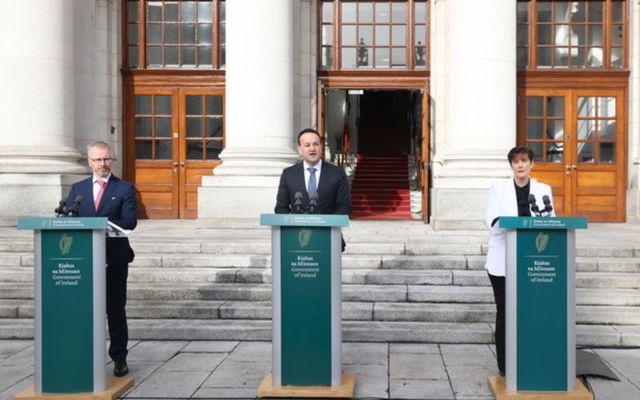The Irish Government has announced that a referendum on gender equality will take place in November 2023.
Taoiseach (Irish leader) Leo Varadkar and Minister for Children, Equality, Disability, Integration and Youth Roderic O'Gorman announced the referendum on Thurs (Mar 9, 2023), with proposals for constitutional amendments due to be published by June 2023.
The referendum will aim to enshrine gender equality in the Constitution and remove outdated language about a woman's role "within the home".
Speaking outside Government Buildings on Thursday morning, Varadkar said the referendum would set Ireland on track to be "a world leader on gender equality in all its forms".
He added that Ireland is a "republic unfinished" until there is equality between men and women.
Varadkar said the Government wants to change three areas of the Constitution in the upcoming referendum.
"One that explicitly recognizes the equality between men and women, enshrining that in our constitution," he said.
"The second, removing the old fashioned language around women in the home, in favor of the recognition of carers and the role they play in society and family life and then thirdly recognizing there are many different types of families in Ireland."
The Citizens Assembly on gender equality in 2021 recommended changes to Articles 40.1, 41.1, 41.2, and 41.3 of the Irish Constitution.
Article 40.1 states that "All citizens shall, as human people, [will be] be held equal before the law" but does not explicitly refer to gender equality or non-discrimination.
Meanwhile, Articles 41.1 and 41.3 define "the family as the natural primary and fundamental unit group of society", adding that marriage is the foundation "on which the family is founded".
Article 41.2 contains a recognition that "by her life within the home, woman gives to the State a support without which the common good cannot be achieved".
It also states that the State shall "endeavor to ensure that mothers shall not be obliged by economic necessity to engage in labor to the neglect of their duties in the home".
Varadkar said some of the languages in the Constitution was "discriminatory" and said it "doesn’t have a place in our Constitution in the 21st century".
"For too long, women and girls have carried a disproportionate share of caring responsibilities, been discriminated against at home and in the workplace, objectified, or lived in fear of domestic or gender-based violence," Varadkar said in a statement.
He added that the referendum would enshrine gender equality in the Constitution and remove the "outmoded reference to 'women in the home'".
The National Women's Council of Ireland has welcomed the referendum, adding that it would bring significant change if it is passed.
Director Orla O'Connor described it as a "timely and significant announcement" for women, families, and gender equality".
"It's a unifying proposal which, if passed, would replace the outdated, limited role for women with a recognition of the value of care, both in the home and in the community," O'Connor told RTÉ News.
"We need to consider a more inclusive definition of family that goes beyond those solely based on marriage – reflecting what is the reality of modern Irish life."




Comments